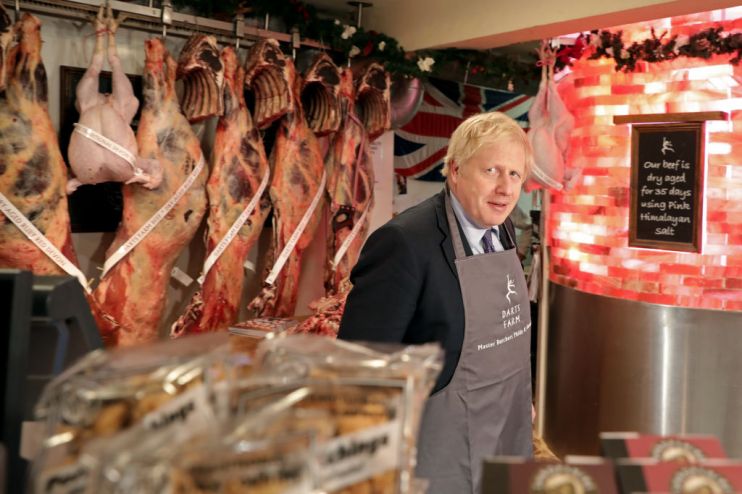The Tories are on track to win a majority — if only they knew what to do with it

Much of this week’s election buzz has focused on the release of Wednesday night’s polling figures.
The hotly-anticipated YouGov MRP model, which accurately predicted a huge parliament in 2017, is currently forecasting a majority for the Conservatives of nearly 70 seats.
There has been a fair amount of commentary about the Conservatives’ nervousness over these figures. If it looks like a landslide, voter complacency can creep in, and the idea of casting a protest vote can feel much safer.
But overall, the Conservatives can’t complain too much. If the MRP poll is anywhere near as accurate as it was two years ago, this would be their biggest win since 1987.
In that sense, one could say that their manifesto tactic worked wonders. Stay relatively quiet, advance the status quo, splash a bit more cash, and don’t rock the boat.
It stuck to the topics that were tried and tested — mainly healthcare, policing, and the Tories’ slogan-favourite Brexit — which seemed to have gained them favour. It was a bit of a risk paying so much lip service (and money) to the NHS, given that this is usually Labour’s turf, but all in all, the gamble appears to have paid off.
For now, the manifesto seems to have delivered, at least for the next couple of weeks.
So what of the next few years?
If the Conservatives come back to government with a strong majority, we have good indicators on where they’ll head in terms of the UK’s relationship with the EU.
But what else will they do with their majority? What would their mandate stand for?
In truth, the UK is facing some major public policy challenges in the near future. The NHS is on its way to dominating public spending, as no realistic level of investment can keep up with changing demographics and old-age care. And the housing crisis remains severe, as 40 per cent of young adults aren’t able to buy one of the cheapest homes in their local area, even with a 10 per cent deposit.
Ticking up investment in the NHS or slightly increasing the number of homes built, absent of any bold reforms to tackle these issues in future, will do very little to fix the many messes Britain is mired in.
Even more baffling, with the tax burden at a near-50 year high, the manifesto glossed over where the state could be rolled back or made more efficient for the purpose of cutting taxes.
The Conservatives, who proudly badge themselves as the “party of the taxpayer”, have set their sights on borrowing to spend yet more money — not even on tax cuts, but on services, where patients and customers rarely see the results of investment.
All the while, the manifesto remains committed to a dreaded digital services levy, as well freezing the planned reduction to corporation tax. These are taxes that are likely to get passed on to workers and consumers, and make it more difficult for Britain to reap potential rewards outside the EU.
The Conservatives’ pitch was designed to be short-termist. And they may well achieve what they set out to do: win this election. But downgrading the importance of the future will prove problematic if they return to Number 10.
The difference between politics and leadership will reveal itself fast.
Main image credit: Getty